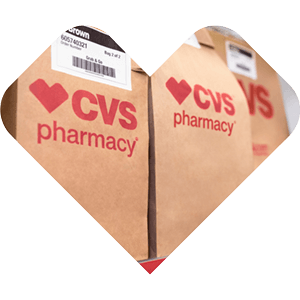Cost, convenience and trust make neighborhood pharmacies the preferred place to get vaccines.
When it comes to preventive care, vaccines are an important first line of defense. They are both effective and cost-effective, * preventing 5 million deaths * per year and saving the United States about $70 billion * in health care and associated costs.* As the health care system looks at more ways to boost vaccination rates, one option has had a transformative impact: delivering more shots at local pharmacies.
This is not a new idea. The first vaccination training * for pharmacists took place in 1994, and over the past few decades, pharmacies have played a critical role in immunizing the public * for illnesses such as influenza and pneumonia.* Yet some states hesitated to expand * pharmacists’ authority to provide the whole range of vaccines for all populations, including children.
“The COVID-19 pandemic changed that dramatically,” says Prem Shah, Executive Vice President, Chief Pharmacy Officer, and President of Pharmacy and Consumer Wellness, CVS Health®. “Flexibilities granted at a national level for the Public Health Emergency enabled pharmacies to immunize millions of Americans against COVID-19 and other preventable diseases. The public has seen the tremendous benefit of being able to get their vaccines at the pharmacy.” In fact, pharmacies became the nation’s leading provider * of the COVID-19 vaccine, with 301.9 million doses * administered.
The Public Readiness and Emergency Preparedness (PREP) Act * went further, giving pharmacists the authority to immunize children ages three and older against childhood diseases and influenza. “That meant that children could also stay up to date on recommended vaccines during the pandemic,” Shah says.
A turning point in vaccine access and delivery
While the COVID-19 public health emergency has ended, the U.S. Department of Health and Human Services intends to continue many of the pharmacy-based flexibilities, at least through December 2024, pursuant to authorities under the PREP Act. Despite many of the flexibilities that enable pharmacy teams to provide access to COVID-19 and flu care * remaining in place temporarily, several groups are calling for pharmacists and technicians to gain the authority to provide more care, including all 25 vaccines * recommended by the Centers for Disease Control and Prevention (CDC) * for a broader range of populations in every state. The argument is straightforward. Only one in five adults * are fully up to date on recommended immunizations, and pharmacists may have several advantages in helping to fill the gap. Many consumers are comfortable receiving their vaccinations at pharmacies, * according to several studies, and see their pharmacists more often * than other providers. * A recent CVS Health survey found that 60% of respondents visited a pharmacy at least once a week, and 53% said they use health care services there because it is faster and more convenient * — with locations close to home and evening and weekend appointments available.
Vaccine shortfalls can occur across geography, race and ethnicity, but tend to occur more frequently in many underserved groups * because of less access to vaccines and greater mistrust of the medical system. But, among older individuals of color, 40% say pharmacists are their most accessible health care provider, * according to a recent survey by the Future of Pharmacy Care Coalition.
Leveraging Americans’ trust of pharmacists
Pharmacists have a unique ability to help close gaps in care, interacting frequently with patients throughout their health care journey. CVS Health began enabling pharmacist access to electronic health records during the pandemic, which was transformative. “Our pharmacists now have a comprehensive picture of medical conditions and whether there are any gaps in preventive care,” says Shah. “We can stress the importance of vaccination and can deliver vaccines and other appropriate care interventions on the spot in between regular provider visits, when the patient is thinking about their health.”
The strongest argument may be the trust that patients have in their pharmacist. In a 2022 CVS Health survey of 2,200 U.S. adults, 74% said they trust their local pharmacist or pharmacy team.
This was especially important in the face of vaccine hesitancy. “When the COVID-19 vaccine was first approved, people had many questions about the safety of the vaccine and how it might affect their specific health conditions,” says Shah. Black and Latino communities were particularly hesitant, even as the pandemic disproportionately harmed communities of color. *





